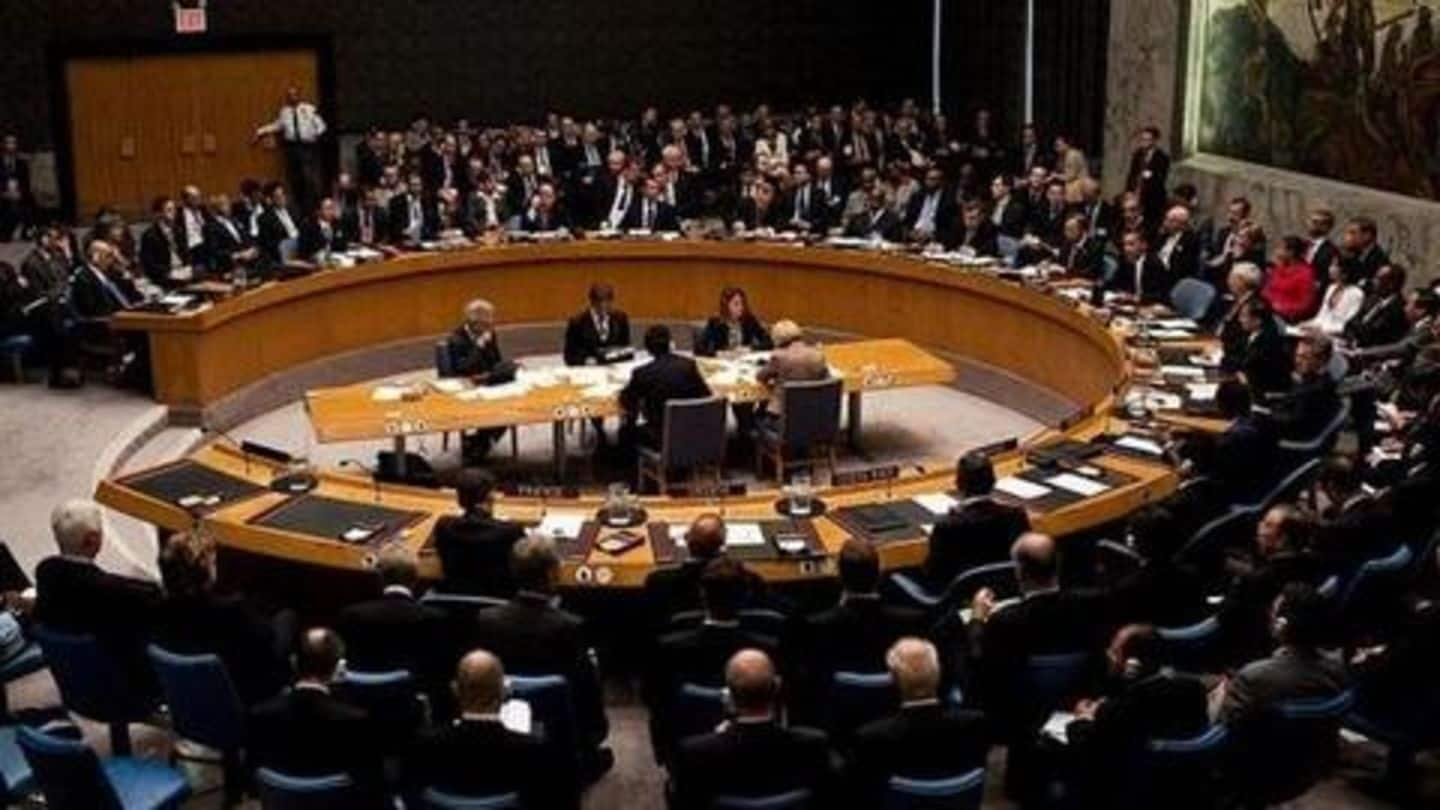
After UNSC's J&K meeting, India says matter 'internal', rebukes Pakistan
What's the story
On Friday, India reiterated that all issues related to Jammu and Kashmir, specifically the abrogation of Article 370, putting the state under lockdown, and dividing it into two union territories, were the country's internal matter, and Pakistan should stop terrorism to initiate dialog.
The comments came after the United Nations Security Council held a rare closed-door meeting to discuss what's happening in J&K.
Meeting
China wanted to discuss J&K, UNSC agreed for 'closed-door' talks
Notably, UNSC agreed to closed-door talks after China, Pakistan's all-weather ally, made a request.
This was the first meeting in five decades which UN convened to discuss J&K. It was in 1965 when such a meeting was called the last time.
By signing the 1972 Simla Agreement, India and Pakistan decided to resolve issues bilaterally, leaving little room for the international community to intervene.
What happened
India and Pakistan weren't part of the meeting
Both India and Pakistan weren't a part of the consultations. The five permanent members of UNSC, namely China, US, UK, Russia, and France, as well as 10 non-permanent members, Belgium, Cote d'Ivoire, Dominican Republic, Equatorial Guinea, Germany, Indonesia, Kuwait, Peru, Poland, and South Africa, discussed J&K at the informal meeting.
Barring China, no other member made a statement about the meeting.
Statement
UNSC members concerned about human rights situation, claimed China
As expected, China took a stand similar to Pakistan and spoke about "human rights violations".
Zhang Jun, Beijing's envoy to UN, claimed UNSC members were "concerned about the human rights situation there and also it's the general view of members that parties concerned should refrain from taking any unilateral action that might further aggravate the tension".
Thereafter, India came up with a strong rebuttal.
Rebuttal
India gave a strong response to China's claims
Rebuking China, India's Permanent UN Ambassador Syed Akbaruddin said, "For the first time after the end of Security Council consultations, we noted that two states (China and Pakistan) who made national statements tried to pass them off as the will of the international community."
Maintaining that New Delhi's decisions related to J&K were internal, Akbaruddin told media that restrictions will be eased gradually.
Quote
Akbaruddin explained India's move will improve J&K's situation
"These have no external ramifications, the recent decisions taken by the Government of India and our legislative bodies are intended to ensure that good governance is promoted and social-economic development is enhanced for our people in Jammu and Kashmir and Ladakh," Akbaruddin said.
Details
India's efforts to restore normalcy struck a chord with UNSC
Akbaruddin also underlined that UNSC appreciated India's efforts to restore normalcy in the valley.
Hours before the meeting, J&K Chief Secretary BVR Subrahmanyam addressed press to inform that government offices were re-opened and educational institutions would start functioning normally from next week.
"We are gratified that the Security Council in its closed consultations appreciated these efforts," Akbaruddin went on.
Pakistan
Akbaruddin said talks and terrorism can't go hand in hand
Taking a jibe at Pakistan, Akbaruddin said Islamabad should stop sponsoring terrorism to start talks. He said Pakistan was trying to project an "alarmist" approach, which was nowhere close to ground realities.
"Of particular concern is that one state is using the terminology of 'jihad' against and promoting violence in India including by their leaders," he said.
India wants to ensure peace in Kashmir, he added.
Twitter Post
Taking Pakistani journalist aback, Akbaruddin shook hands
Brilliant interaction by Indian envoy to the UN @AkbaruddinIndia aftr #UNSC meet on #Kashmir.
— Geeta Mohan گیتا موہن गीता मोहन (@Geeta_Mohan) August 16, 2019
His response to a Pak journo's ques on resumption of talks...
"So, let me start by coming across to you and shaking hands..."😀 👍@IndiaToday @MEAIndia @DrSJaishankar @IndiaUNNewYork pic.twitter.com/0LrIFAM7QA